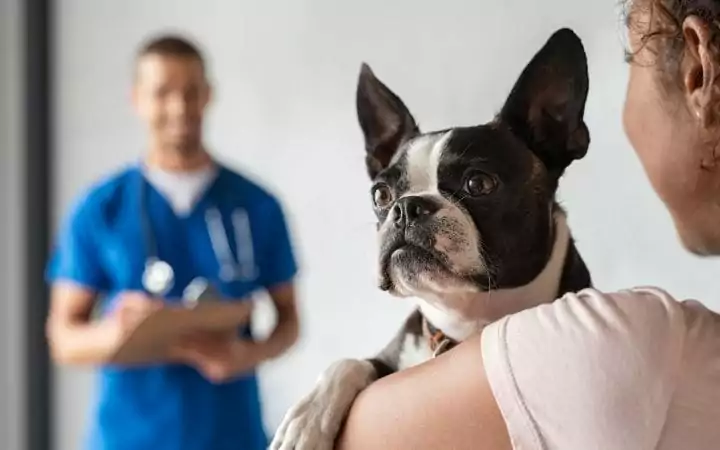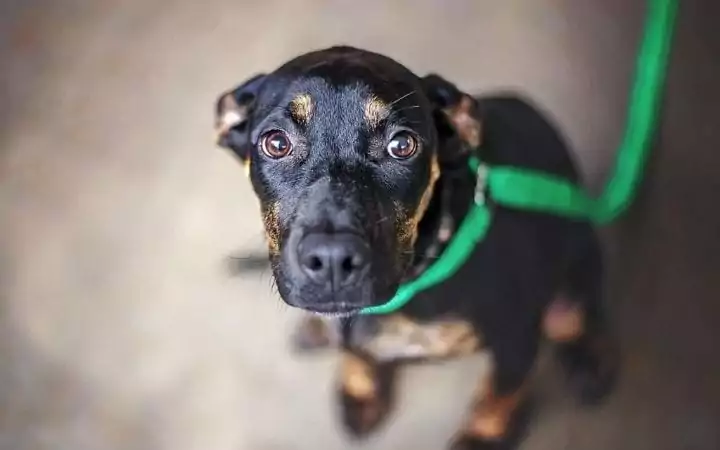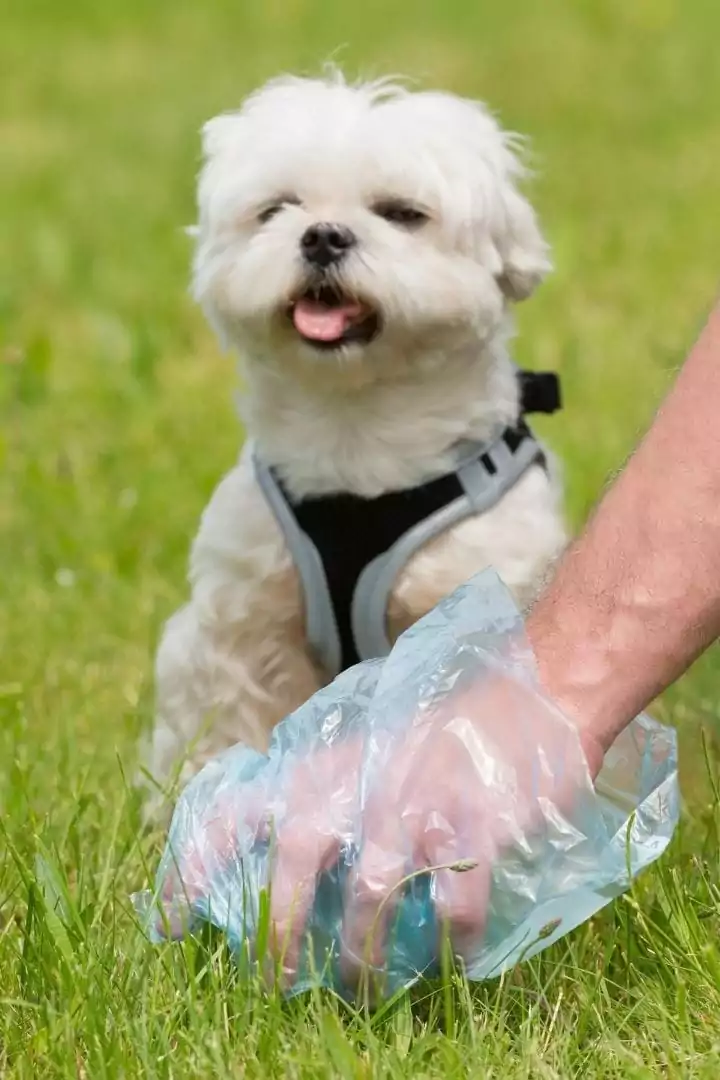Coccidia is a small single-celled parasite that lives in the intestines of dogs. Even though it’s a tiny parasite, the coccidiosis it causes can be very uncomfortable for your dog. Coccidia in puppies is most common. But, coccidiosis in dogs is also seen in the clinic from time to time. So what are your options when it comes to coccidia treatment? Take a read below!
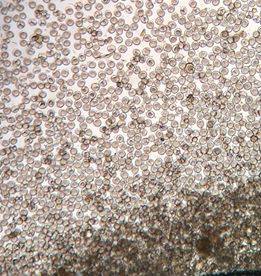
How Can My Dog Become Infected with Coccidia?
Coccidia is a single-celled organism called protozoa. The immature stage of protozoa is called Oocysts. These get passed in the stool of other dogs. They then lie in the environment and can contaminate surfaces and substances. Here oocysts mature into a more developed oocyst. When more mature the oocyst can infect a new dog.
Often the coccidia gets contracted orally. This happens when they ingest fecal matter from other dogs, which contains oocysts. Sometimes this fecal matter will be straight from another dog poop, other times it is due to contamination of other surfaces:
- Contaminated food
- Contaminated water
- Contaminated body tissue
Coccidia is resistant to most disinfectants. This means it can survive in the environment for a long time. Meaning it can easily infect other dogs. When dogs swallow the oocyst it travels to the intestines. Here it releases sporozoites that invade the cells of the intestinal wall. Here they will multiply and repeat the cycle. Which quickly can cause symptoms in your dog.
Signs & Symptoms of Coccidia in Dogs
Most adult dogs infected with coccidia do not have diarrhea or any other clinical symptoms. But, in puppies and immunosuppressed individuals, the symptoms can vary. Often in any range from mild to severe. The symptoms include:
- Watery diarrhea – sometimes containing blood
- Dehydration
- Abdominal distress
- Vomiting
Diarrhea can often be quite significant in volume and smelly. This means a lot of owners will often recognize the symptoms in their dogs early on.
In puppies, the symptoms and health problems can become more severe. Especially when left untreated. As puppies are also more likely to become infected. Partly due to chewing on anything they can get close to. But, also because they are more often in crowded conditions, along with other puppies. It is important to seek veterinary help if you suspect your puppy has become infected with coccidia.
Diagnosing Coccidia in Dogs
Often coccidiosis can be asymptomatic. Meaning there are no clinical symptoms. In these cases, veterinarians may discover coccidia as part of routine examinations.
In patients where clinical symptoms are present, there are diagnostic tests available. These will test for coccidia as well as other parasites.
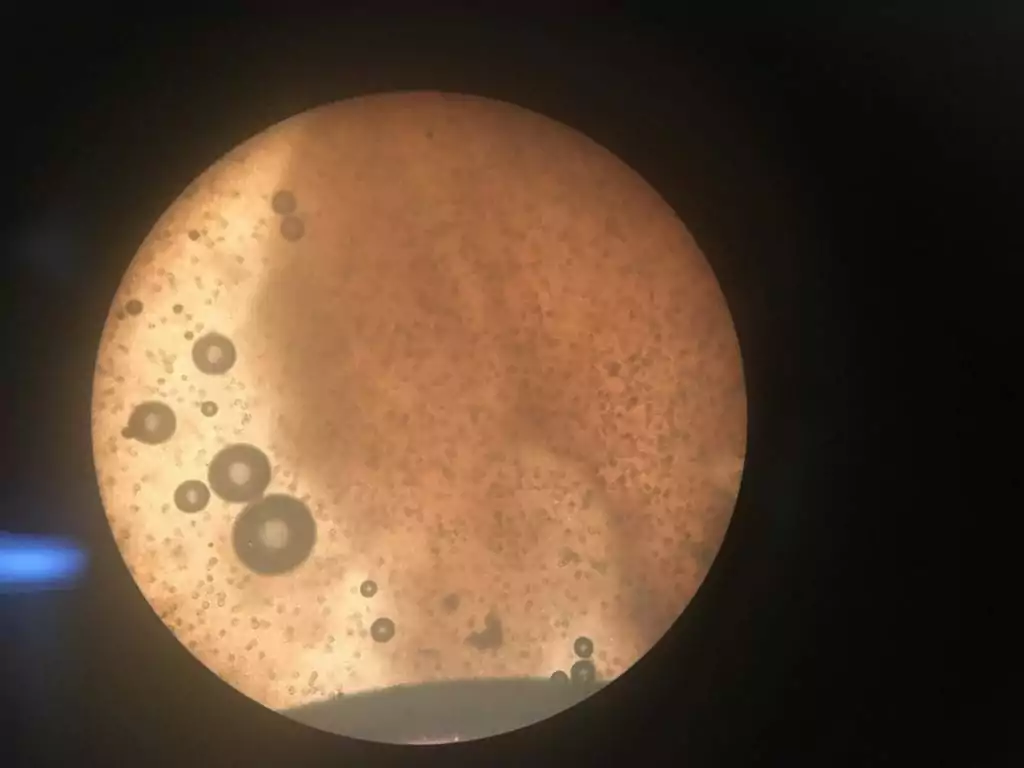
Multiple fecal samples need to be collected as the protozoa are shed intermittently. Often the clinic will need fecal samples from three consecutive days. Fecal flotation is then done.
Hereafter a microscopic examination looking for oocysts is done.
As the oocyst is much smaller than the eggs of intestinal worms, a careful evaluation must be made. Adding a zinc sulfate flotation solution can make detention of the oocysts easier.
If no coccidia are found during the microscopic examination, there are other options. Some of the less common coccidia parasites need a blood test for a diagnosis. Often the clinic uses a small snap test to give a quick in-house diagnosis.
How is Coccidiosis in Dogs Treated?
Coccidiosis is luckily a treatable condition. You should however always consult with a veterinarian if you suspect your dog is sick. Or if you think your dog is suffering from coccidiosis. Not all cases need medical treatment. But, if they do, your veterinarian will be able to guide you with the right treatment and care.
If the patient presenting in the clinic is dehydrated, supportive care is necessary. This includes subcutaneous or intravenous fluid.
To treat the parasites antibiotics are the most common medication used. Often the used type is Sulfadimethoxine. Though some veterinarians prefer the use of other medication, like ponazuril. Often the medication is administered for 10-14 days. But, in some cases treatment can be necessary for longer, in some cases up till 25 days.
The reinfection of dogs is very common as the coccidia survives for a long time in the environment. It is very important to clean and disinfect the environment the dog is in contact with.
Diluted chlorine bleach (250 ml in 4 liters of water) is effective against coccidia. Which means it’s useful on any surface that can handle the bleach. Any carpet or couch should be steam cleaned. Blankets etc. need washing at high temperatures, preferably at above 90 degrees celsius.
In some cases, a repeat fecal sample can be necessary after ending the treatment. This to ensure that the medication has worked and the infection has cleared. Some dogs will need to repeat treatment.
The prognosis for dogs with coccidiosis is normally good. But the infection can often be associated with stress, immunosuppression, and other agents. Some dogs will suffer from repeat cases of Coccidia. If this is the case, it can be necessary to investigate any underlying conditions. As some will cause problems or complications.
Is Coccidia Contagious for Humans or Other Pets?
Coccidia is quite contagious between dogs. Fortunately, though, the protozoa are host-specific. This means that while cats can become infected with other types of coccidia. The ones specific to your dog, will not be able to infect your cat.
The most common species of coccidia in dogs also cannot affect humans. But, the less common ones can in rare cases infect humans. One of these is Cryptosporidium. Although it is very rare. Cryptosporidium infection can pose a health risk for immunosuppressed individuals. Such as cancer patients and the elderly.
This is why good hygiene and proper disposal of dog feces are very important. This is to minimize the risk of transmission of canine parasites to humans, as well as other dogs.
Preventing Coccidia
Picking up after your dog is a good place to start when it comes to preventing Coccidia. Avoiding areas where other dog owners fail to pick up after their dogs is as well. This will significantly lower the risk of your dog ingesting fecal matter. A matter that may be infected with Oocysts and therefore may infect your dog.
Overcrowding also heightens the risk of infections. This is important to remember when boarding your dog. Always look for facilities that follow proper hygiene procedures.
Most veterinarians will also recommend annual fecal examinations for all dogs. Even if they appear to have no symptoms. This to catch any parasites that may be present. Before they cause symptoms as well as infect other dogs. Recently adopted dogs and puppies should also have a fecal examination done.
There’s no vaccine available for Coccidiosis.
Summary
Coccidia is caused by a small parasite that can however cause quite a mess. As well as being uncomfortable for your dog. Luckily it is often easy to treat and rarely caused long term issues for your furry friend. As long as you make sure to follow the care plan set out by your vet. Remember to practice really good hygiene and pick up after your dog. Then your four-legged friend should quickly recover and run around free of parasites.


